Travels with Dick and Karen
London, Part 6
Chelsea Physic Garden and
Chelsea Flower Show
This page covers two days of our trip. The first to the Chelsea Physic Garden was early in the month, the second to the Chelsea Garden Show was near the end. Both involved a walk due south to just shy of the banks of the Thames.
|
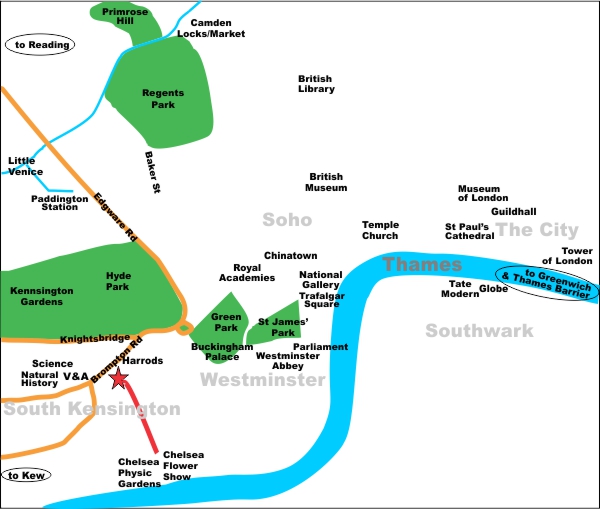 |
| We followed our map and someone's directions and came to a wall. We then chose the wrong direction and ended up walking 3/4ths of the way around the block before we finally found the doorway that gave entry to this old walled garden. |
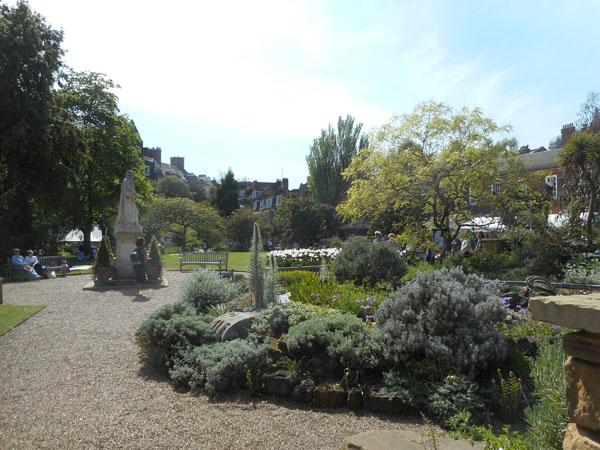 |
A "Physic Garden" is one containing medicinal plants. Part of the garden has plants grouped by medicinal use, part by who and/or where they were collected |
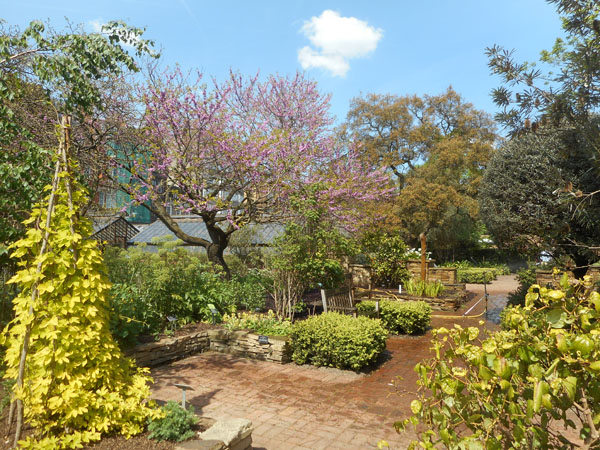 |
Before walking ourselves ragged, we paused for lunch on the grounds.
Karen was spoiled by having the best scone with clotted cream and jam of the entire trip. |
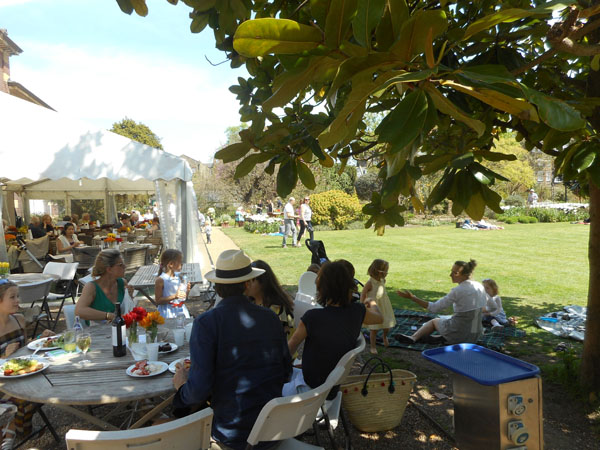 |
| We were asked if we wanted to join the free tour but decided to just wander around and marvel at things on our own. |
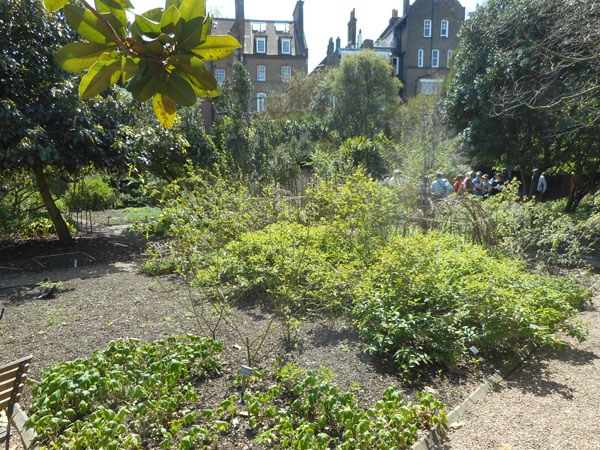 |
| Lots of tree ferns for Karen |
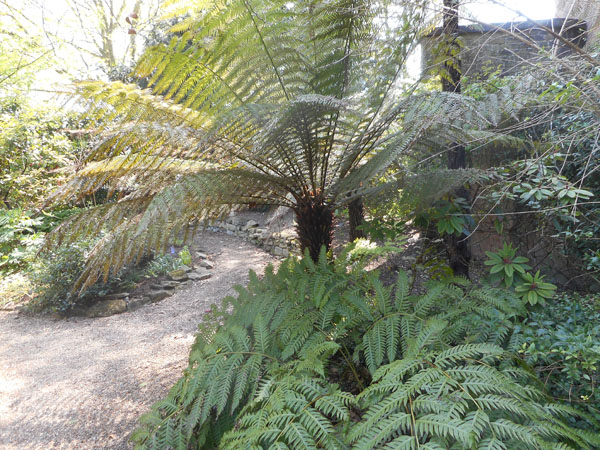 |
Even the cut down stump of one
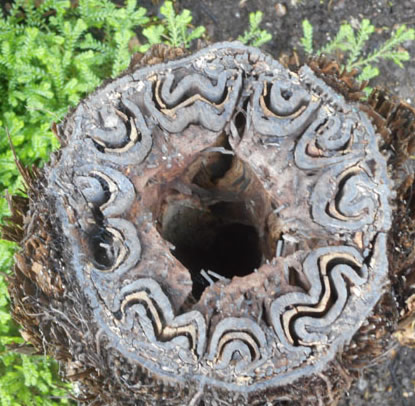
|
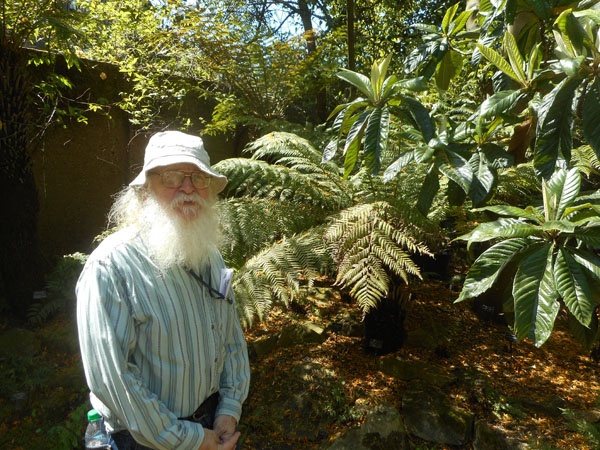 |
An unlabled geometric plant. Karen wouldn't be surprised if it is a thistle or if it is some weird family she's never heard of.
Given the setting, it is not a weed (at least here). |
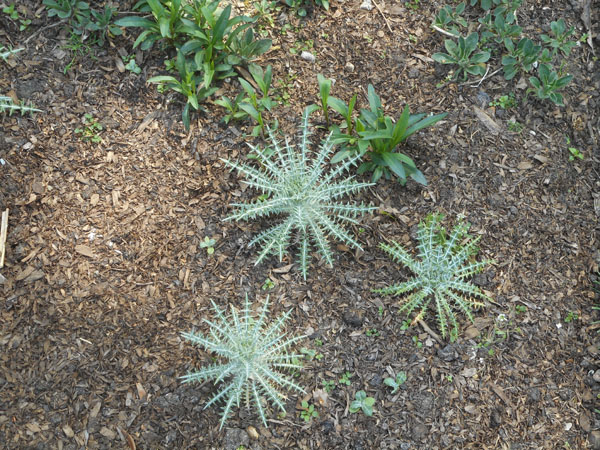 |
Huge mistletoes on ancient roses (probably intentionally infected). |
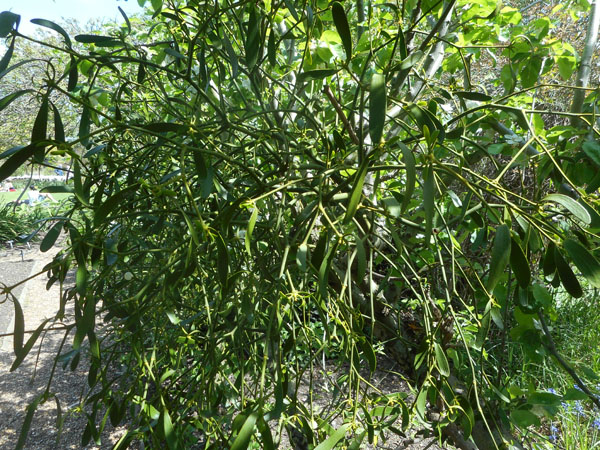 |
| A small gathering of canivorous plants |
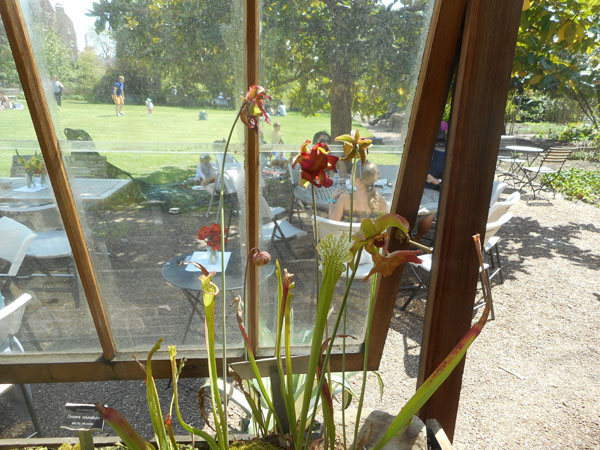 |
| and succulents |
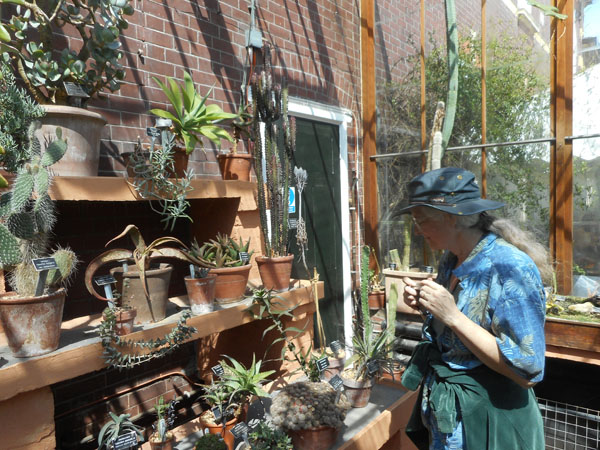 |
| interesting orchids in the greenhouses |
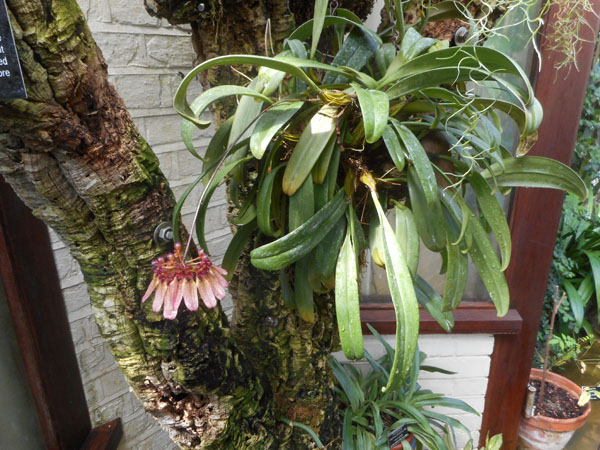 |
| Flowering Bird of Paradise |
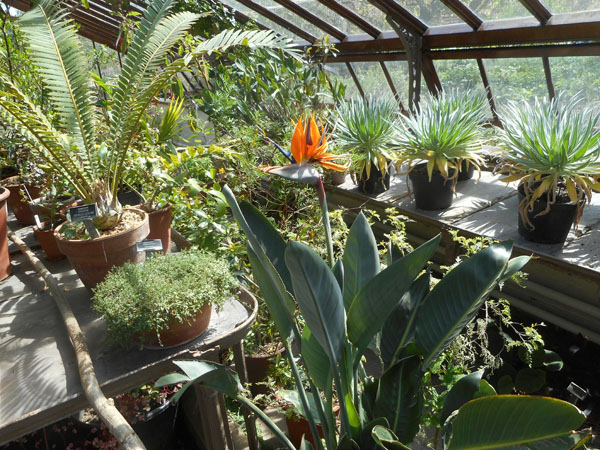 |
| An informative kiosk in the garden. Interactive in a low tech sort of way: lots of drawers and cupboards to open |
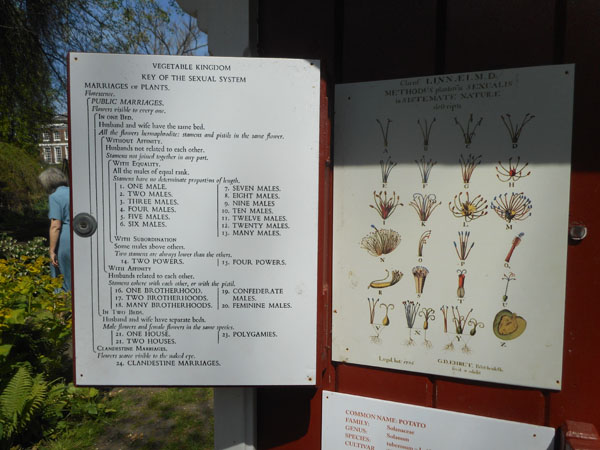 |
| Carl Linnæus, developer of "binomial nomenclature", as honored by his native Swedish currency. |
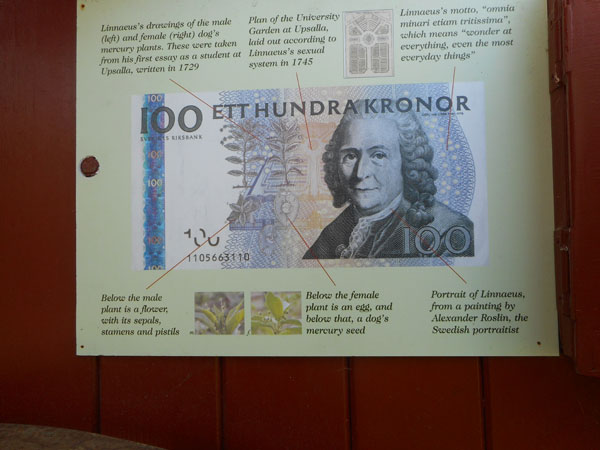 |
| All public gardens seem to have the same goals (top sign) and problems (lower)... |
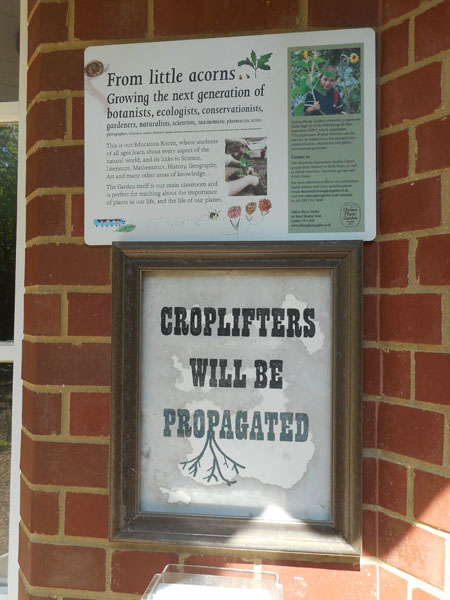 |
On our way home from the Physic Garden, we got a peek at the preparations for the Chelsea Garden Show which would open in three weeks. They spend a month setting it up. The next slide is three weeks later.... |
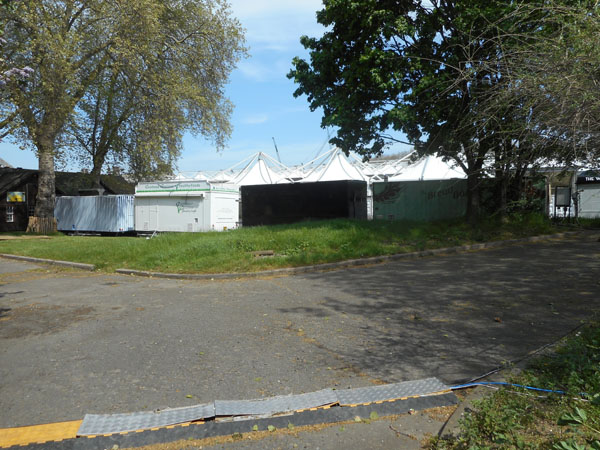 |
| The day of our Flower Show tickets dawned (we had reserved tickets back in March). We walk back through the neighborhood which now has flower displays in nearly every shop |
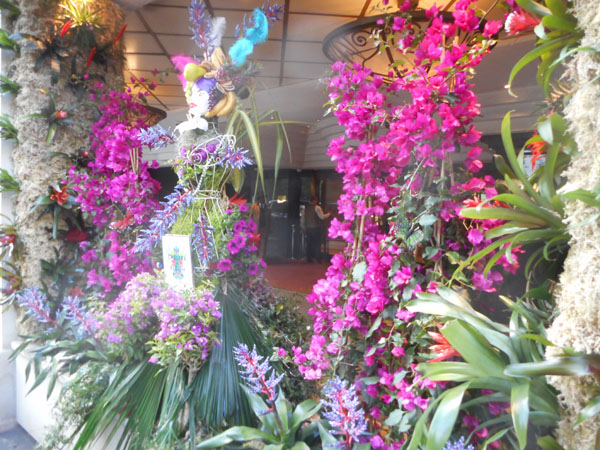 |
| ... or on them. |
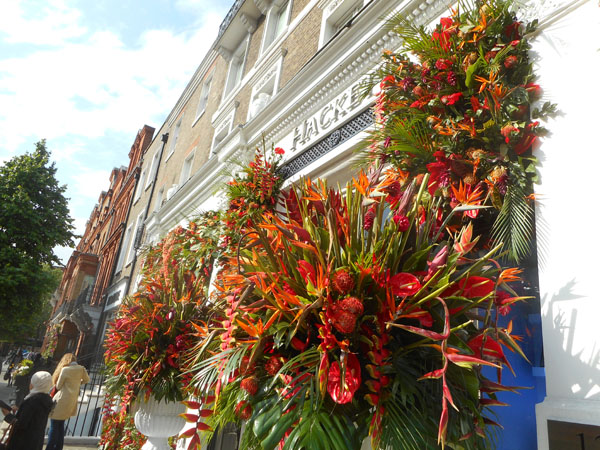 |
| Duke of York Square shared decorations between the flower show and colorful mouths associated with a Rolling Stones exhibit at the adjacent Saatchi Gallery. |
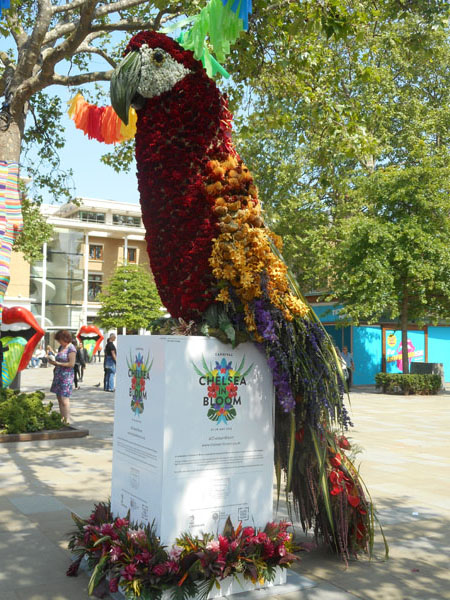 |
The entry to the Garden Show is beside the Royal Chelsea Hospital, a home for retired veterans, on whose grounds it is presented each year. A decade ago this was said to be the world's largest garden show. They now merely claim most prestigious. |
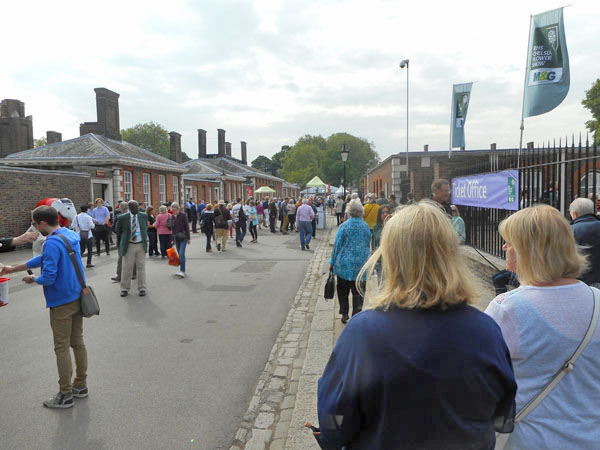 |
| It certainly was large and crowded.
The blue squares are vendors' booths: artisans, antiques, garden shoes and tools.
The large white rectangle is a massive temporary pavillion, full of nurseries', garden clubs' and other floral displays. The areas surrounding the pavillion, plus the green rectangles are the display gardens.
Karen was very impressed that they had plumbed in about 30 flush toilets in each temporary women's room. They weren't going to subject folks who paid this much for tickets to stinky portable outhouses!
The Show runs for a week... the Queen attends on Monday, Royal Horticultural Society members exclusively Tuesday & Wednesday, and then the public may come on Thursday, Friday and Saturday. Over 150,000 people attend (limited due to space in the gardens) so tickets are generally only available by advance booking. |
 |
This was one of the more elegant garden displays There are numerous corporate-sponsored gardens, frequently created and executed by internationally-famous designers. |
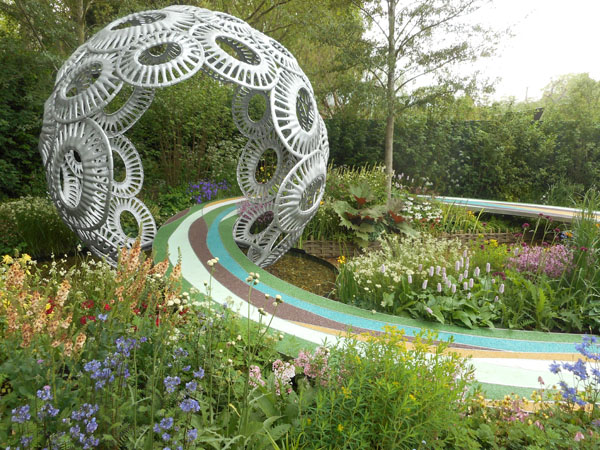 |
The theme of this one was mathematics
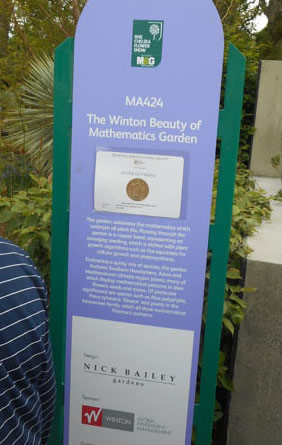
|
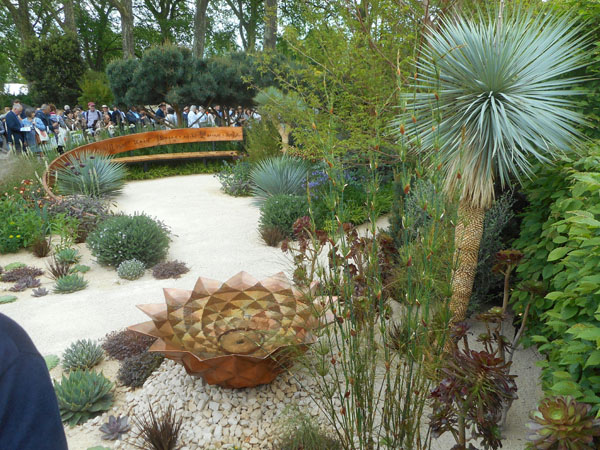 |
| The garden sponsored by Harrod's had an animated gardener in an old shed |
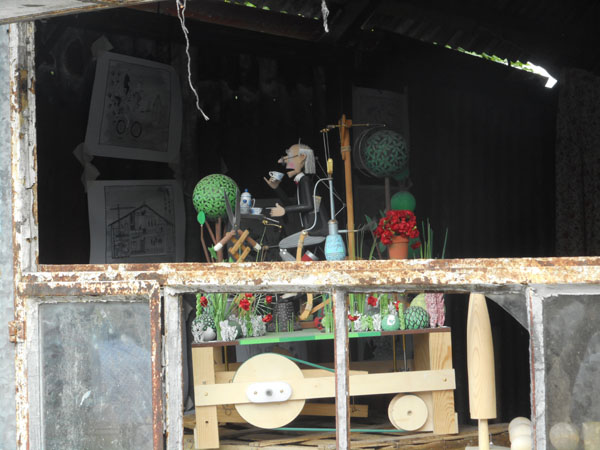 |
... every 15 minutes Harrod's trees twirled around and the window boxes went up and down Quite appropriately, its full title was "The Harrods British Eccentrics Garden". |
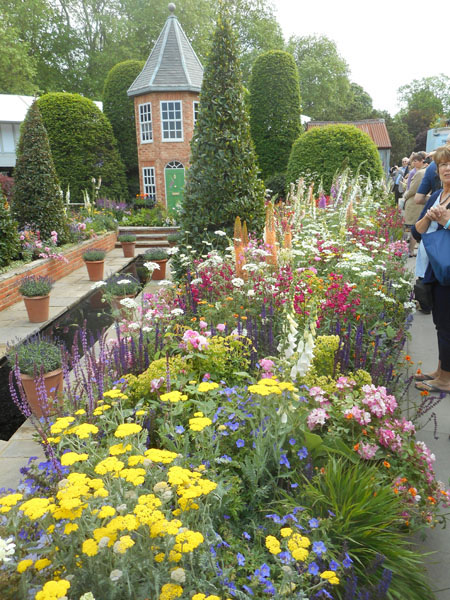 |
... which led to crowds of people waiting for the next performance |
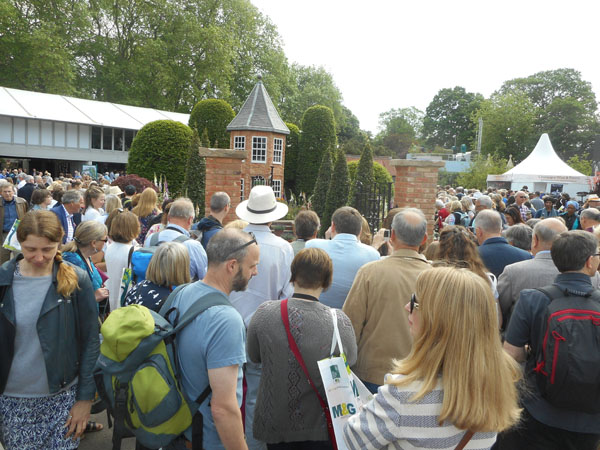 |
There were artful plantings in every nook and cranny |
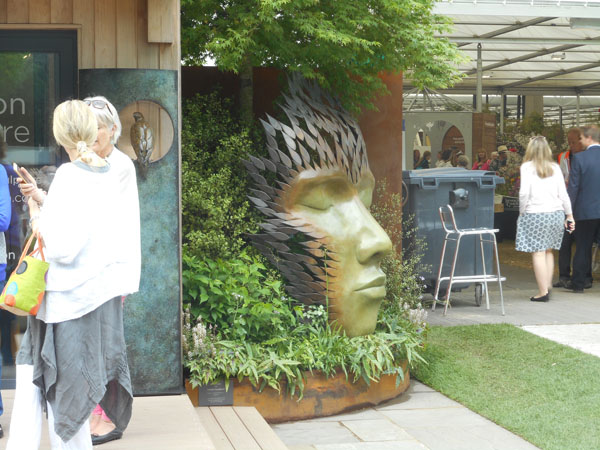 |
| Going in to a small building to view the flower arrangements got out of the crowds for a moment |
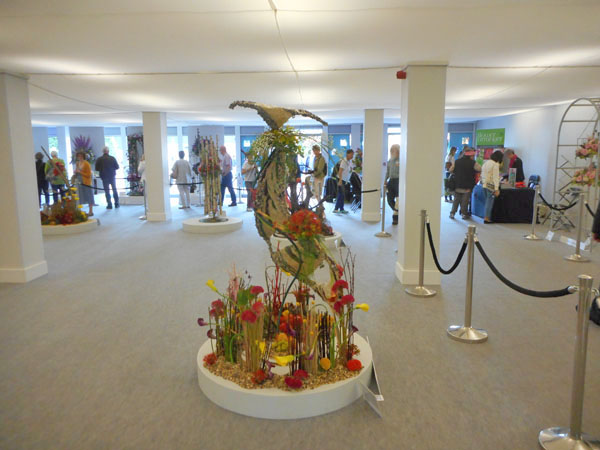 |
| This was the winner in one category |
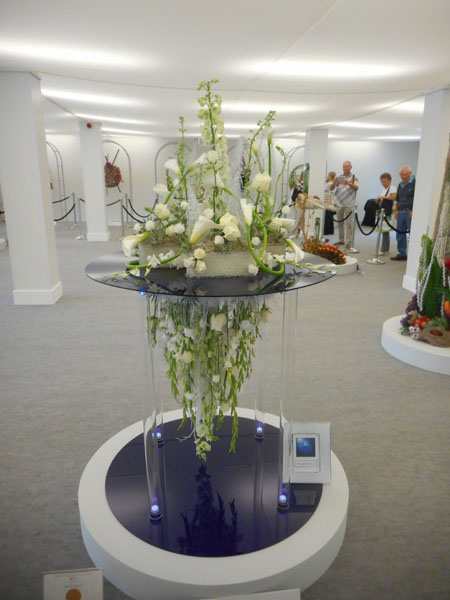 |
| And this a runner-up |
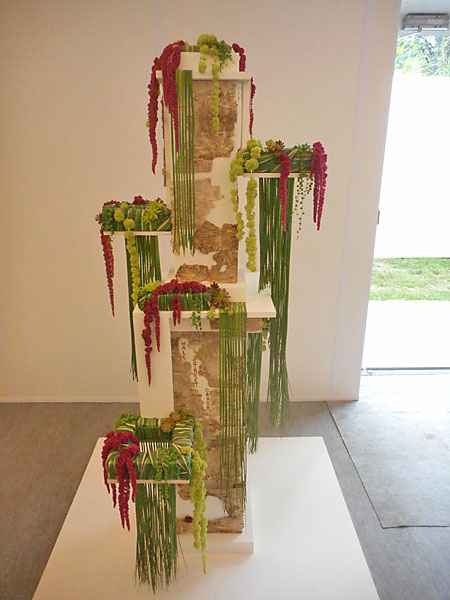 |
| Stepping outdoors again, we stopped at some artists' booths. Karen was very impressed with both the quality and the variety. |
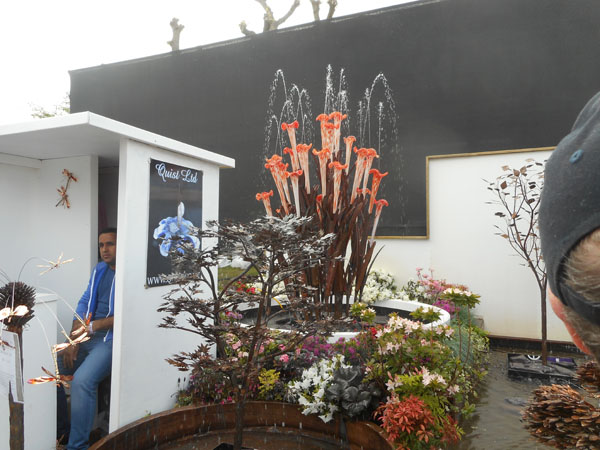 |
| This is the UK ... these shapes are slate from an Edinburgh artist. |
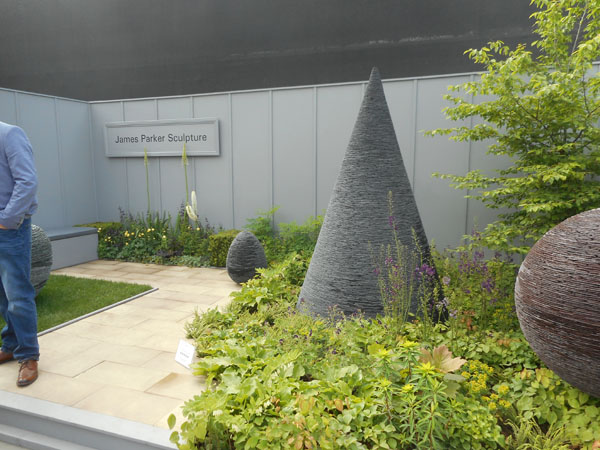 |
| David Meredith's bronze sculptures. |
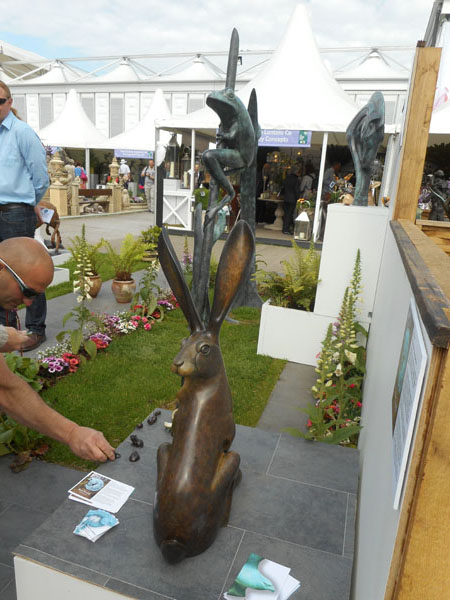 |
| James Doran Webb's fantastic driftwood creations |
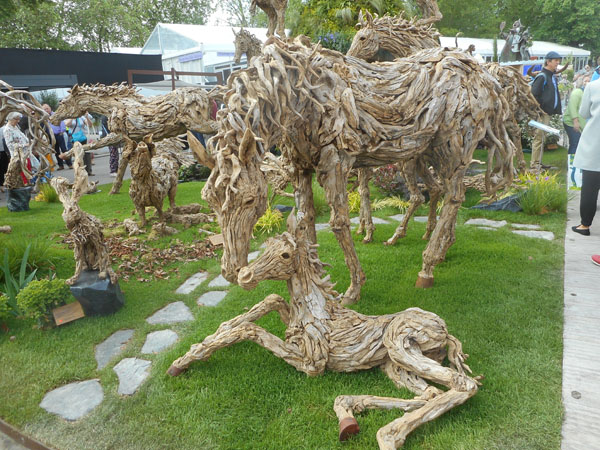 |
| The things you can do (or buy) with "easigrass" artificial grass... |
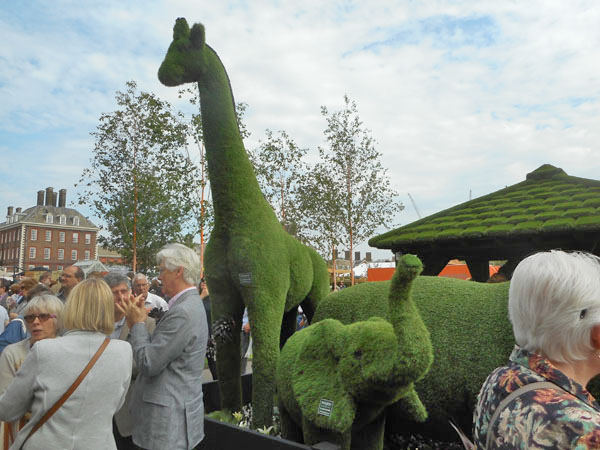 |
| Blue Forest Treehouses.... shown small ... |
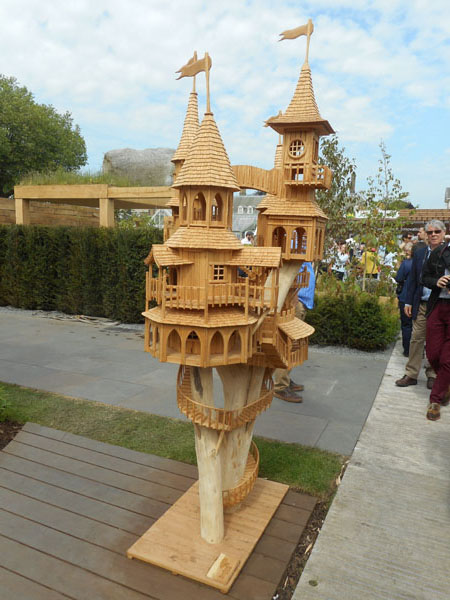 |
| ... but built large |
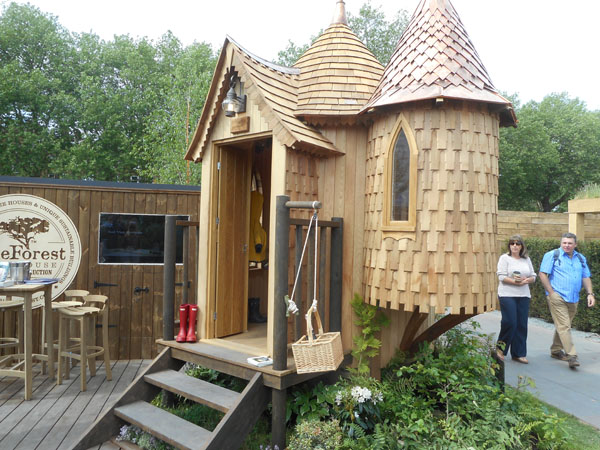 |
| "Over-sized fruit sculptures" from Hamburg, Germany. |
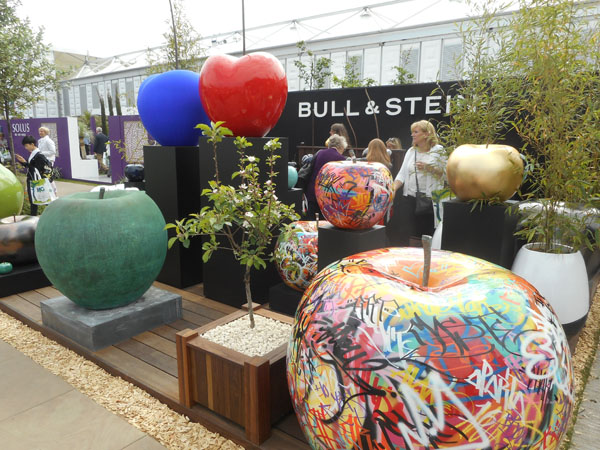 |
Carrie Anne Funnell had a large booth and seemed to me to be the best glass artist there (there weren't many). I hope she did well.
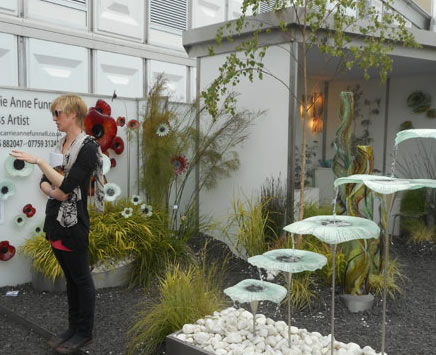
|
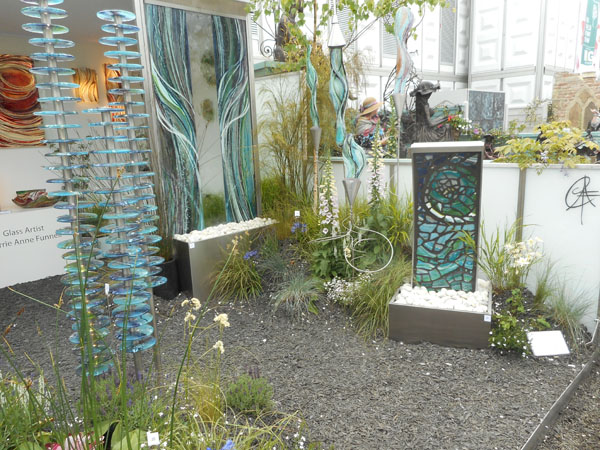 |
Quoting the Show's catalog: "The Imperial Garden - Revive explores the complex relationships between Russia, Ukraine and the UK."
Featuring metal lace sculptures and the statue by Ukrainian Victoria Chichinadze, sponsored by imperialgarden.ru, installed by a UK contrator.
After the Chelsea Show, it moved on to the Moscow Flower Show. |
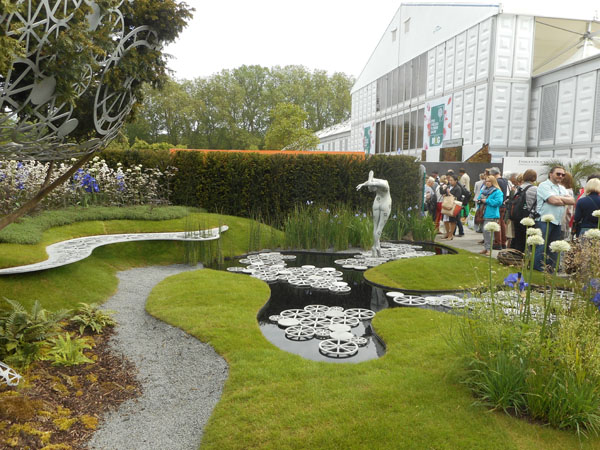 |
This one was also fun to see, but carried a serious message. It's the World Vision Garden, the curves symbolizing the ups and downs of life, with "growing crescendos of new hope". Behind it stands the "Grand Pavillion"... |
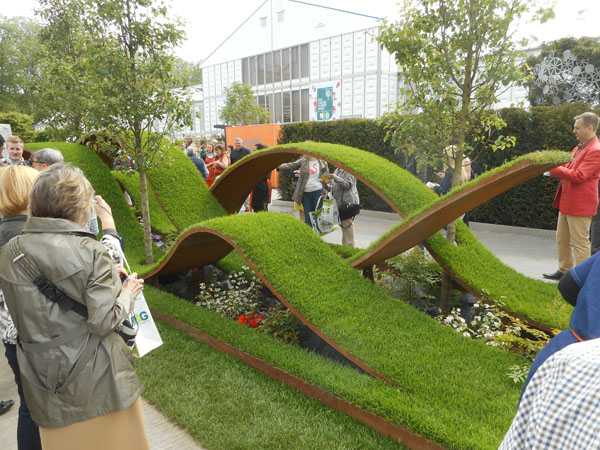 |
| We enter the "Grand Pavillion"... This is one small corner of it ... |
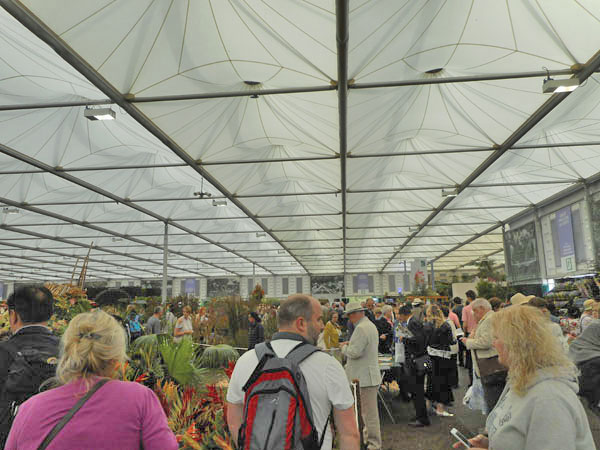 |
| The Pavillion was tall enough to go over the permanent obelisk. The sculptured "trees" were part of the Show's installation. As were the tree ferns. |
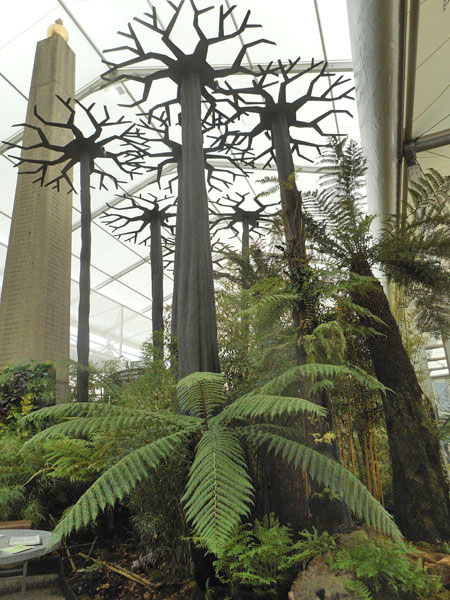 |
| It wouldn't be a British exhibition without something for the "train spotters"... inside the pavillion (obelisk getting a bit lost in the distance). |
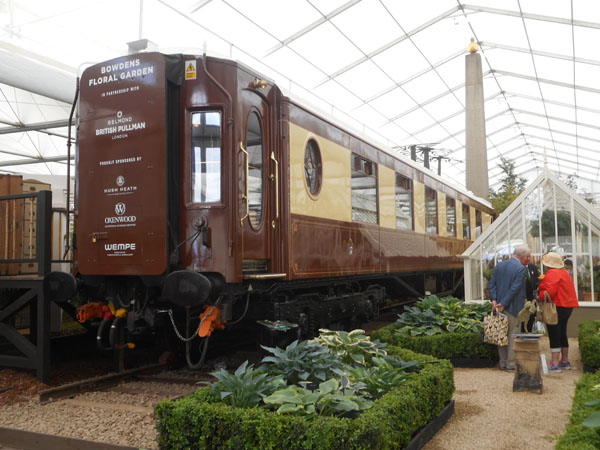 |
| Most of the Pavillion space was a grid of individual presentations by nurseries, associations and gardens ... about 250 in all. |
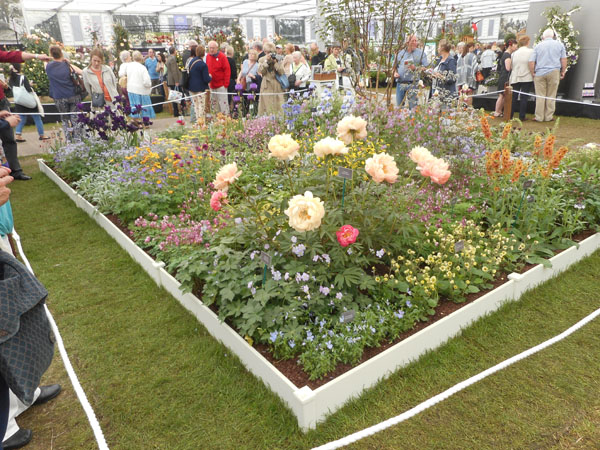 |
| Kirstenbosch, the gardens we visited in South Africa, had a display of proteas and other South African wildflowers. |
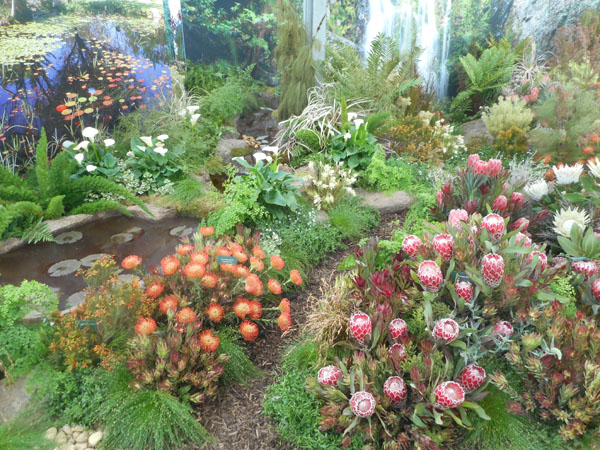 |
| As did Barbados (which we will now more strongly consider visiting because of the nice people manning the booth). |
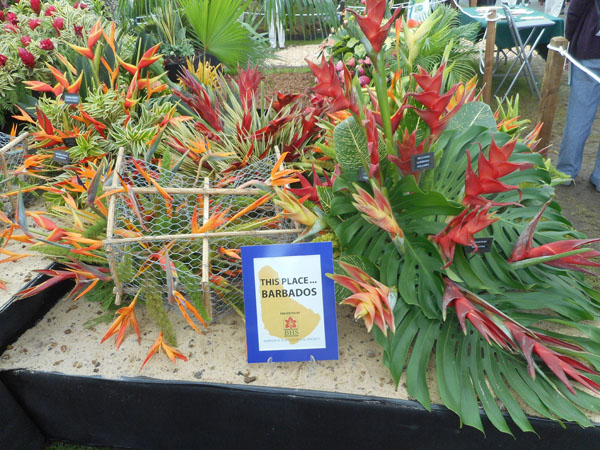 |
The National Chrysanthemum Society ...
|
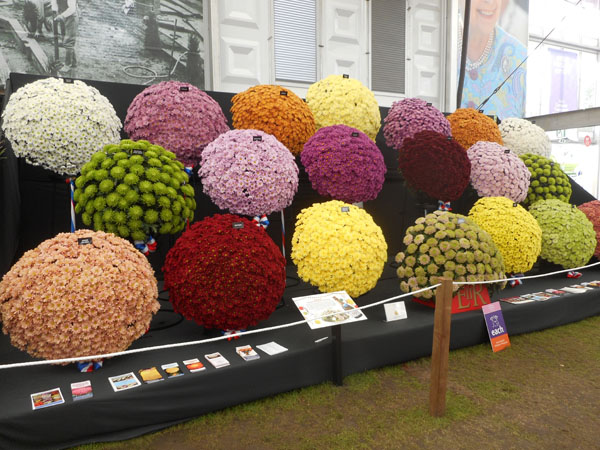 |
| Getting them all to bloom on schedule takes a really green thumb (and lots of knowledge and a bit of luck) |
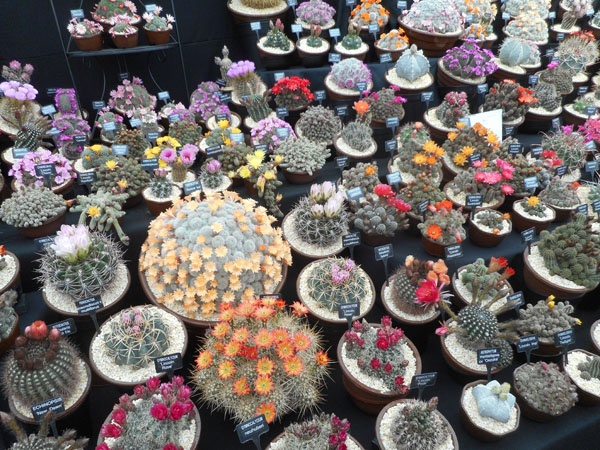 |
| Alliums and Amaryllis from W.S.Warmenhoven in the Netherlands |
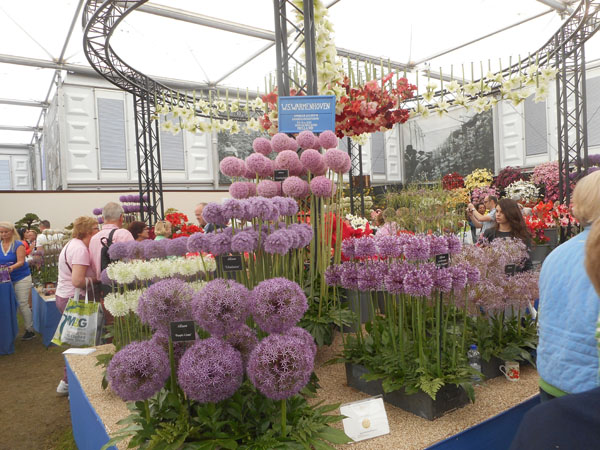 |
| A tiny section of the National Rhodedendron Society's 100th Anniversary display... this bit honoring the exploratory and collecting efforts of George Forrest in both the Himalayas and Yunnan. |
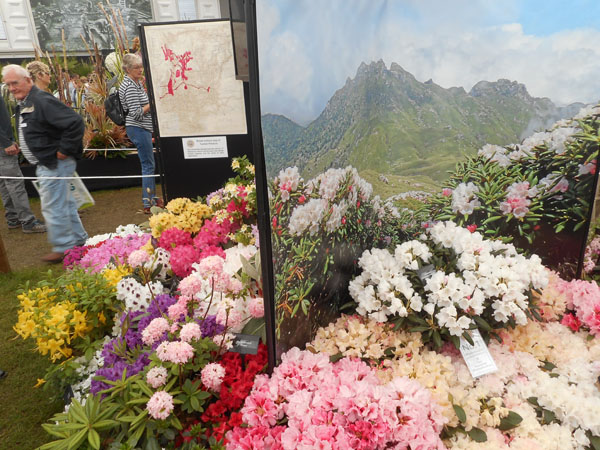 |
| Did you know that most commercially-supplied long stem roses now come from Kenya? |
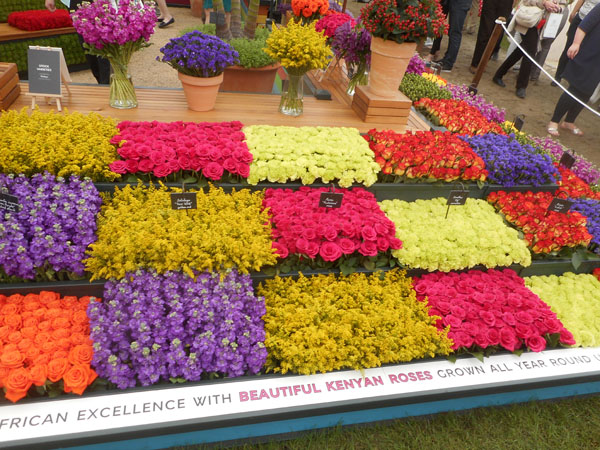 |
| Carnivorous plants trying to keep the Pavillion clear of insects... |
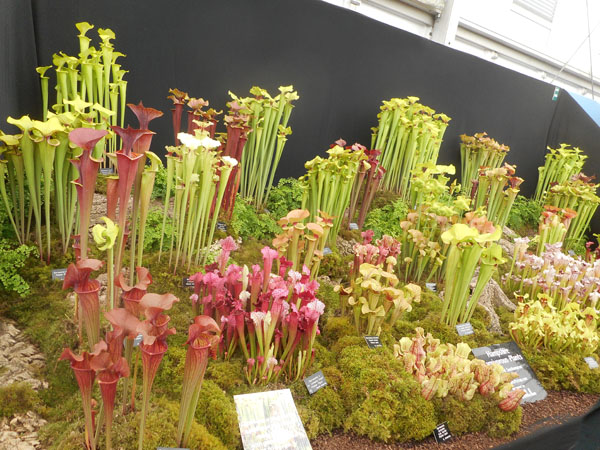 |
Whew...
Once more out of the pavillion, we enter the avenue of vendors: tote bags(1), garden shoes(2), tools(3) and fine art(4) all jumbled together
(1) bought some
(2) tried some on
(3) played with
(4) appreciated
|
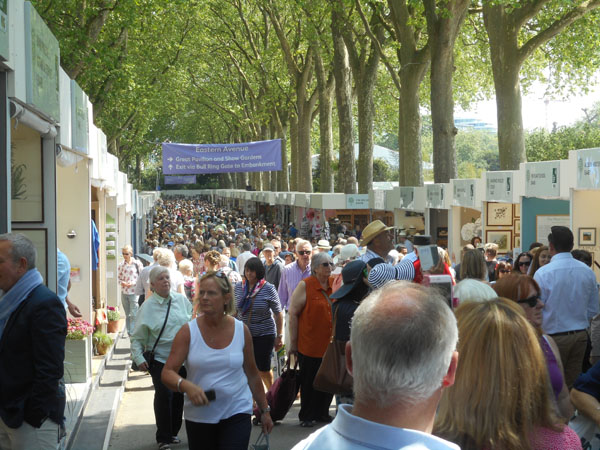 |
| One of my favorite pieces (by artist Mark Stoddart) |
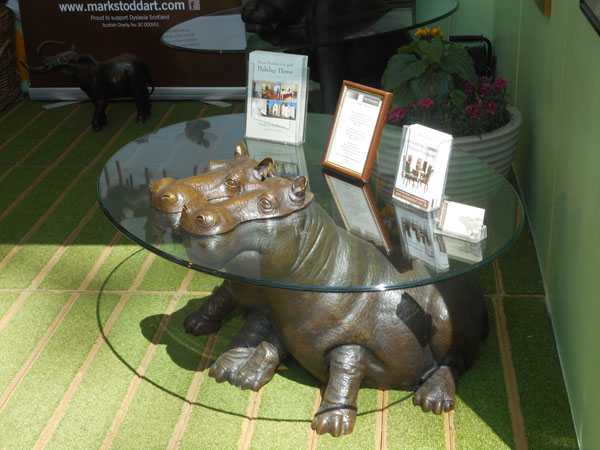 |
| Alison Holt's embroidery was amazing. |
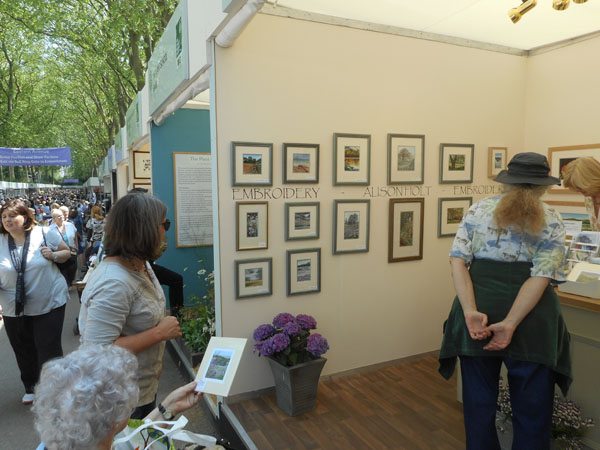 |
| People were sitting on every possible place. |
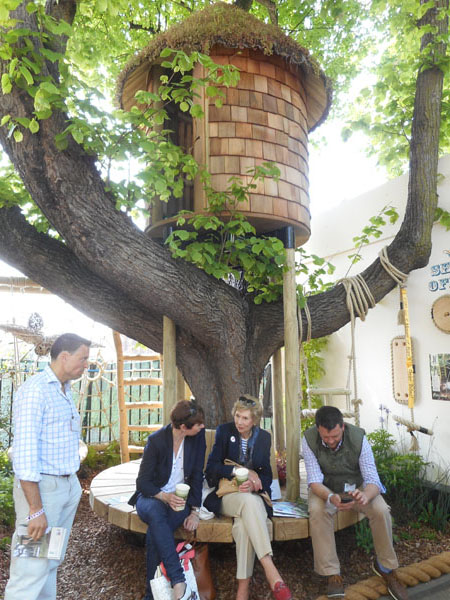 |
| Eventually we got tired of the crowds and wandered out. |
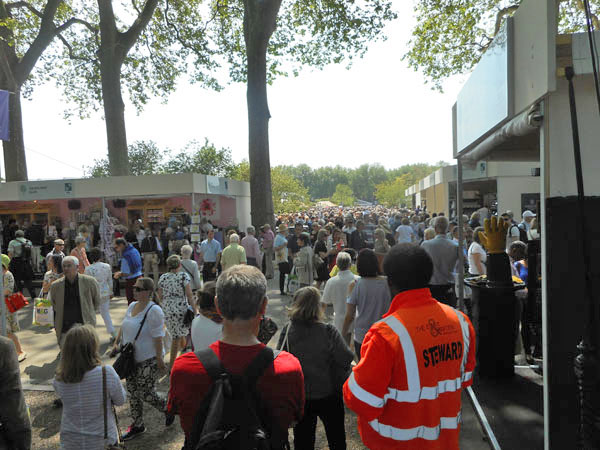 |
| And were amused by the line of pedicabs waiting at the exit. |
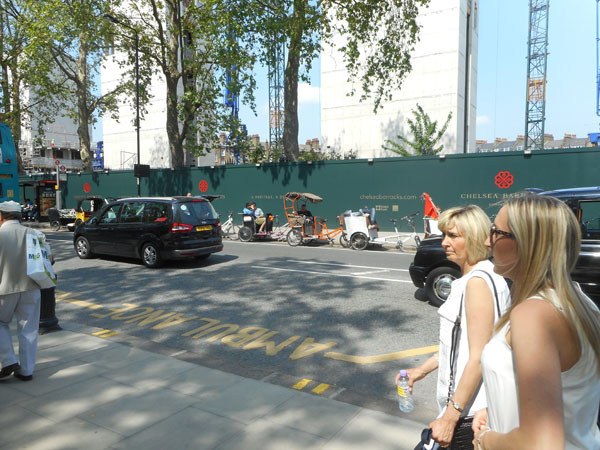 |






























































